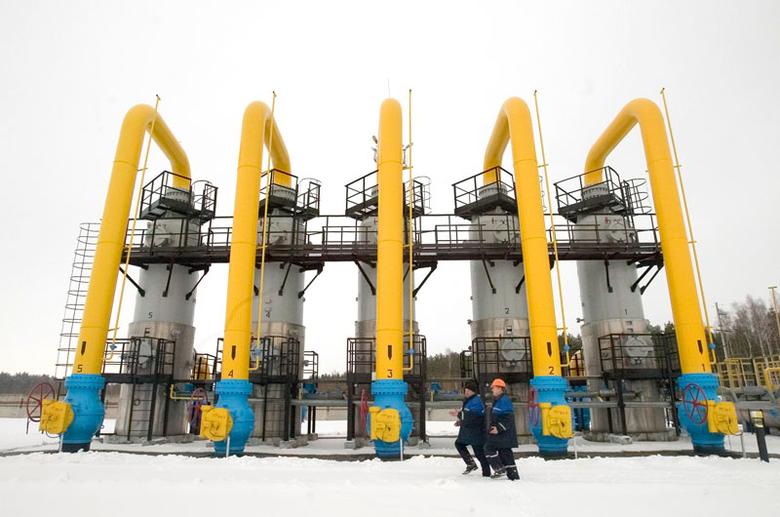
EU: ENERGY SECURITY BETTER

Europe's development of new sources of gas, away from dependence on Russian flows via Ukraine, means security of supply "has never been better", the chief financial officer of Statoil said, even as tensions over Ukraine revive fears of a cut-off.
CFO Torgrim Reitan also told Reuters in an interview on Monday that Statoil's cooperation with top Russian oil producer Rosneft has so far been unaffected by the several rounds of recent U.S. and European sanctions on Russian companies and executives over Moscow's involvement in Ukraine.
While Europe's dependence on Russian gas has risen to one third from about one quarter five years ago, a growing network of pipelines and a series of new liquid natural gas (LNG) import terminals are set to significantly increase Europe's sources of supply in the coming years.
"Energy security for gas has never been better," Reitan said. Statoil is the second-largest European gas supplier after Russia at about a fifth.
Around half of Russia's gas supply to Europe currently goes via pipelines through Ukraine, but Europe is set to connect with several new sources in the coming years.
Statoil has a stake in Azerbaijan's Shah Deniz II gas project, which is expected to bring gas into Europe towards the end of the decade.
Both Poland and Lithuania are planning to start operating new LNG import terminals early next year, reducing their dependence on Russia. Estonia and Finland also are planning LNG terminals towards the end of the decade.
And Russia can today bypass Ukraine to supply gas to Europe, its biggest buyer, via the Northstream pipeline, which went online in 2011. Southstream, which will supply gas into Europe from Russia through the Black Sea is expected to go online of the end of the decade.
"We now have a liquid market on the continent, and that provides energy security. That clears the prices," Reitan said.
"There have been investments in reverse flows, so you can get gas from west to east, and there are multiple sources. There is Norwegian gas; there is Russian gas from various pipelines; there is Azeri gas; there is North African gas and LNG re-gas capacity in several places," he added.
Even though Moscow cut gas flows via Ukraine in the winters of 2006 and 2009 due to price disputes with Kiev, which affected Europe, Reitan described Russia as a "trustworthy" supplier.
Russia is now demanding that Ukraine pay at least $2.2 billion of a gas debt of $3.5 billion.
"There has always been a geo-political twist to the gas market in Europe. But Russian supplies have been stable and very trustworthy for many decades, even if some of the geo-political issues have gone up and down," Reitan said.
BUSINESS AS USUAL
From Statoil's perspective, the western sanctions on Russian companies and close allies of President Vladimir Putin, including the head of Rosneft Igor Sechin, have had no impact, Reitan said.
Statoil has several joint projects with Rosneft, including deals to explore for oil and gas in Siberia and above the Arctic Circle, as well as shale oil in the south of the country.
"We have a long-term relationship with Russia companies, we've been there for 20 years. We have been working well with Rosneft on the joint venture ... We will comply with sanctions, but progress is (going) well in our relationship with Rosneft," Reitan said.
SVERDRUP DELAYS
The CFO also said that Norway's plan to require oil firms operating in the Utsira High area of the North Sea to obtain hydropower from shore in order to keep down carbon emissions would not delay Statoil's giant $20 billion Johan Sverdrup field development project.
"It is commercially sensible to use electricity. The concept we have chosen is based on the full electrification of Johann Sverdrup from day one ... I think it is fair to say that is in all interests to see that it is not delayed and, I do not think that will happen," he said.
The Johan Sverdrup field is scheduled to come on stream at the end of 2019 to produce up to 2.9 billion barrels of oil in total.
reuters.com





